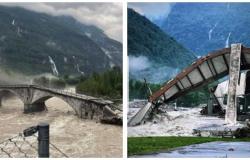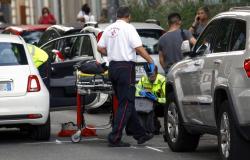Clarify the degree of application of the ‘Calabria Decree’ in each healthcare company in the Region.
This is asked by Ottavia Soncini (Pd) who, recalling the recent ‘General States of specialist training’, underlines how post-graduate training in Italy is at a crossroads: “on the one hand, the shortage of medical and healthcare personnel, exacerbated by Covid 19 pandemic, risks bringing our NHS to its knees, on the other hand, the exponential increase in enrollments in the faculties of medicine and surgery, without an adequate increase in specialization places, risks creating an army of doctors with no future” .
For the dem councilor, interesting data emerged from the event organized by Anaao Assomed which took place in Rome between 31 May and 1 June “especially with reference to the possibilities of hiring through the mechanism of the so-called ‘Calabria Decree’, which regulated in 2018 the possibility for specialist doctors to be hired on a fixed-term basis, with automatic conversion of the permanent contract upon obtaining the specialty qualification, starting from the second year of the specialization course. Hiring, which can take place in all hospitals forming part of the training network of any specialization school in one’s own discipline, is regulated by a specific framework agreement relating to the methods of carrying out specialist training and in which the hiring methods, the responsibility of the new hire and the carrying out of the theoretical and practical activity”.
From the framework of the national law, Soncini underlines “the non-discretion of the regions and of the directors of specialization schools regarding hiring” and how, thanks also to further implementations, “the hiring of postgraduates becomes structural, losing the status of measure emergency, doubles the hiring time from 18 to 36 months and above all introduces the automatic hiring of residents by the health company 90 days after the request for employment at the university where the resident is enrolled; this assumption, in fact, occurs even in the event of refusal or lack of response from the University”.
Also considering an internal survey by Anaao Assomed on almost 2000 postgraduate students from which it clearly emerged that almost all of the respondents know the mechanisms of the ‘Calabria Decree’ and consider this mechanism as “an excellent or at least a good opportunity” and that the Universities ” who have a monopoly on specialist training, cannot guarantee quality training for the entire generation of future specialists”, the councilor highlights how “the current system is based on an anachronistic classification: doctors in training are considered students and not workers, with all the negative consequences in terms of protection, remuneration and rights”.
Then, in the face of “the total unavailability of universities to stipulate agreements with universities in Italian regions other than their own, thus preventing thousands of hirings, although the regulatory system does not recognize that universities have any power regarding the hiring of doctors in specialist training”, Ottavia Soncini relaunches the structural reform proposal launched by Anaao Assomed of the postgraduate training system and from here turns to the regional executive to find out “what actions it intends to undertake to guarantee the widest possible use of the mechanism for hiring specialists envisaged by these provisions to address the worrying shortage of professionals in the National Health Service”.






